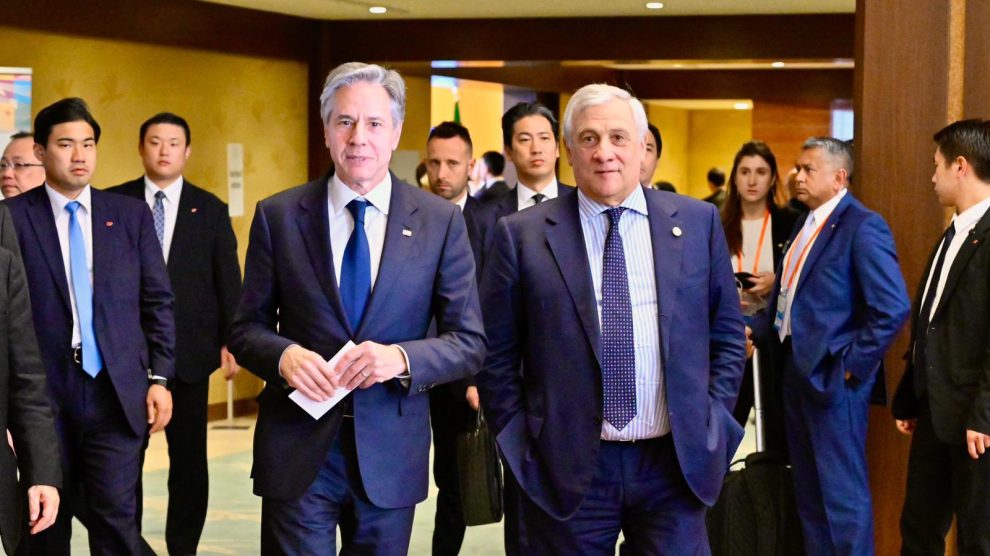Japan hands over G-7 presidency to Italy. The Group of Seven’s foreign ministries wrapped up their final meeting on Wednesday, with Italy’s Antonio Tajani announcing on X that Tokyo had passed on the chairmanship to Rome. “The government wants to strengthen the G-7 in 2024 as an instrument of democracies for growth and peace in the world,” he wrote on X.
- During the meeting, G-7 ministries announced a unified stance on the Israel-Hamas conflict where they condemned the latter, supported Israel’s right to self-defence and called for humanitarian pauses to ensure aid reaches civilians in Gaza.
The key themes. The Israel-Hamas conflict has brought the former to the fore, and the issue will “certainly” be on the agenda, the Italian FM told Nikkei. “We will also continue to counter Russia’s aggression against Ukraine and work for the security and sustainable growth of the global economy, which is threatened by autocracies. In addition, we will focus on the digital transition and especially on the challenges of artificial intelligence.”
- “We want to strengthen relations globally, especially in Africa, the Mediterranean and the G-20. Relations with our partners must focus on possible synergies in various areas: energy security, combating climate change, environment, labour, technology transfer, and pursuit of the Sustainable Development Goals.”
- This, he highlighted, is the essence of Italy’s upcoming Mattei Plan for Africa. “We believe that we need to invest more in Africa, especially in renewable energy. Finally, we will work on migration, which is closely linked to development and economic growth.”
Aligning with Washington… The 2024 G-7 key themes were also at the centre of FM Tajani’s bilateral meeting with United States Secretary of State Antony Blinken, where the two discussed their cooperation to ensure security in Israel and solve the humanitarian crisis in Gaza. Italy and the US share a “full agreement” on the prospect of de-escalation and a “two peoples, two states” political solution to the Israeli-Palestinian crisis.
… and Tokyo. Minister Tajani also took care to reiterate to Japan’s Foreign and Commerce Ministers, Yoko Kamikawa and Yasutoshi Nishimura, that the Italian government is “relaunching” its strategic partnership with Japan. He also sought to express Rome’s willingness to bolster bilateral exchange and investments.
An expanding entente. Among others, it’s likely that South Korea’s President Yoon Suk Yeol (with whom Italian President Sergio Mattarella signed three cooperation agreements on Wednesday) and India’s Narendra Modi (with whom PM Meloni struck a strategic partnership in March) will be invited at the G-7 leaders’ meeting.
- The African Union will also be invited, in line with Rome’s focus on the continent and its push to integrate it into the G-20 (now G-21).
image: @Antonio_Tajani on X





